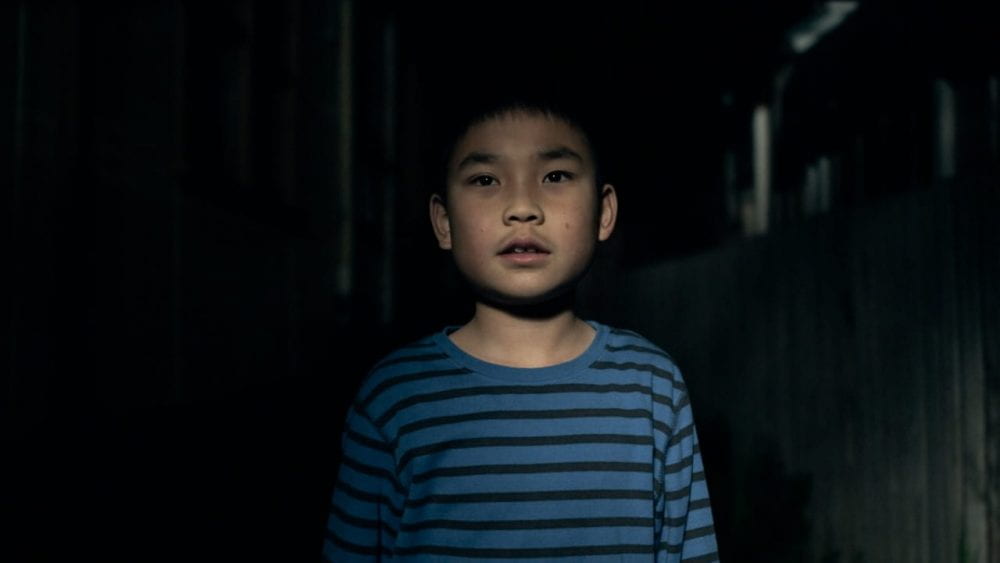VCA Digital Archive: multiculturalism in Australia

The VCA Digital Archive is a living audiovisual record of student films that date back to 1966. The articles in this series respond thematically to the depth and breadth of the collection. Enjoy!
By Gwendolyn Lin
In the 2016 census, “nearly half (49%) of Australians had either been born overseas (first generation Australian) or one or both parents had been born overseas (second generation Australian)”. In such a multicultural country, why are there still some of us struggling to call Australia home and feeling the need to choose between their cultures? The following two filmmakers from the VCA Digital Archive use their life experiences to explore the meaning of one’s identity and belonging.
Parting the Cloud
Patricia McCormick’s Parting the Cloud (1996) begins with the following statement:
“I have journeyed through clouds of adversity searching for a place to belong. I am marked by the signs of my ancestry drawing me back to foreign ground.”
This documentary is a personal journey of reconciliation with one’s heritage and search for identity. The star is McCormick’s Chinese grandmother. Born in Darwin, she tells stories of working at the age of 11 and facing marriage in her mid-teens. She tells her stories with such modesty and is able to still find joy in her memories despite difficult conditions at the time.
McCormick captures the true essence of traditional oral storytelling. This documentary is a special and personal ode to McCormick’s ancestors and her grandmother. She pays respect to them, but in the end finds peace within herself:
“… I think your identity lies with the memories you have, and they have a bigger effect of what you are because they draw on what you were …”
Wonder Boy
“What kind of Chinese doesn’t speak Chinese?”
For a fictional story, Corrie Chen’s Wonder Boy (2010) could just about be any immigrant’s biopic. It’s clear from the start that our protagonist Clancy struggles with his mother tongue because he’s just a kid, and a kid who just wants to fit in in school. Instead of paying attention in Chinese class, or eating a sandwich filled with fried rice his mother makes for him, Clancy would rather assimilate with his Australian classmates.
It’s heartbreaking that the mother and son live almost like strangers. But neither are to be blamed. I’m the child of an immigrant myself, and it’s common in the Chinese culture for our parents to make sure we’re born ready to run on our two feet. They only wish the best for us, but sometimes they don’t see that we just want to blend in because we feel insecure for standing out.
Clancy is caught between two cultures that have different expectations in order for him to fit in. We can only imagine his internal struggle with his identity as he figures out where he belongs. However, it’s a hopeful ending in the sense that all the answers Clancy needs are within himself.
Both filmmakers have a cultural and personal connection to their work, accentuating their narrative voice.
McCormick talks candidly about feeling lost in China, which I relate to. Even though I may look like everyone else there, my Mandarin would sound foreign to the locals, and myself. Corrie Chen and her family moved from Taiwan to Australia and, in her own words, she is “… naturally drawn to stories that explore the themes of identity and belonging.”
These filmmakers write what they know to be true – and that makes their voices authentic and unique. They question our cultural identity which comes with the human experience. To discover a deeper sense of self as we introspect who we are and where we belong in this vast world.
Australia is home to diverse migrants – more than a fifth of us speak languages other than English at home. In recent years, there’s been a string of semi and autobiographical immigrant Australian stories brought onto the screen such as Lion (2016), Ali’s Wedding (2017), The Family Law (2016–), Ronny Chieng: International Student (2017–), and Homecoming Queens (2018), directed by Corrie Chen.
They’re pieces of brave and vulnerable work as these storytellers reconnect with their roots and rekindle family relationships they might have cut off while trying to discover who they are.
These stories shine light on a different perspective of growing up in Australia, and we laugh and cry as we see ourselves in them. It’s time for more compelling authentic stories that come from the heart – to inspire others with difference, and open people’s eyes to the less explored side of Australia.
Gwendolyn Lin moved from Auckland, New Zealand to study at the Faculty of Fine Arts and Music at the University of Melbourne. She will be graduating in 2019 with a Bachelor of Fine Arts (Film and Television).
The VCA Digital Archive series of articles was commissioned as part of a grant from the University of Melbourne, Student Services Amenities Fee. University of Melbourne staff and students and some industry people dipped into the FTV archive and watched films based on themes. The idea was to use the archive as stimulus to curate and create. Some responses are completely creative, others are reviews, others are word art pieces.
The full collection is available for research.